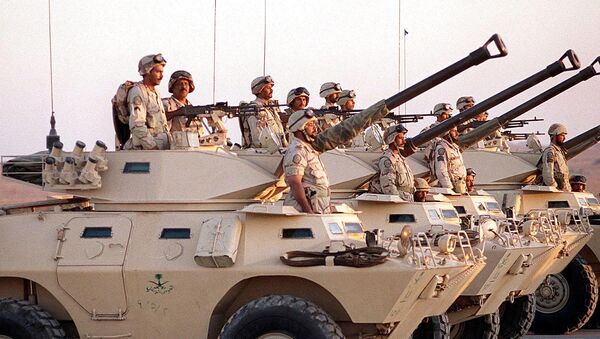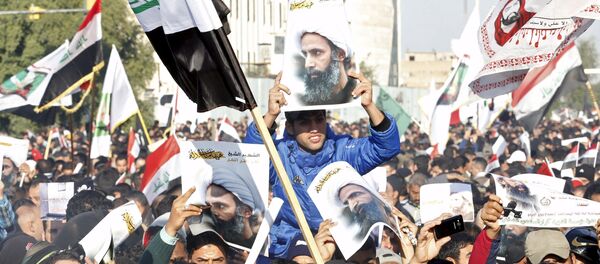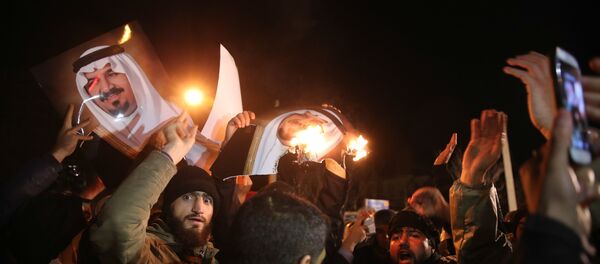According to Daniel-Dylan Böhmer, German journalist from the newspaper Die Welt, Saudi Arabia's rulers made a big mistake by executing a major Shiite preacher.
"Was it reasonable for Saudi Arabia to execute a major Shiite preacher at the very moment when politicians in Iran — a sworn enemy of Riyadh — are competing in the election campaign for the title of the most ardent defender of the Shiites?" Böhmer asked.
In his opinion, it would be difficult to imagine a situation in which Nimr's execution could have more dangerous consequences and therefore argued, that the move of Saudi authorities can be described as nothing else but an "outright stupidity."
And yet, all these reactions, as well as Nimrah's execution fit in the logic of the absurd, prevailing in the Middle East, where the parties to the conflict used to increasingly sacrifice long-term prospects for short-term benefits, Böhmer concluded.
Another German journalist Andreas Zumach argued that the world is currently witnessing the start of the fourth war in the Persian Gulf.
In his article for the German newspaper Tagesanzeiger, the author wrote that the conflict between Iran and Saudi Arabia undermines the chances of ending the war in Syria.
"In the middle-term perspective, the conflict between Riyadh and Tehran may even turn into a fourth war in the Gulf that can surpass all the previous three since 1980 in the number of victims, the amount of damage and negative consequences for the entire region,” the journalist wrote.
The author also argued that in this situation, Germany, the United States and other allies of Riyadh should stop all weapons supplies and other forms of military, economic or political support for Saudi Arabia as the country may perceive them as a motivation or assistance in its further struggle against Iran.





